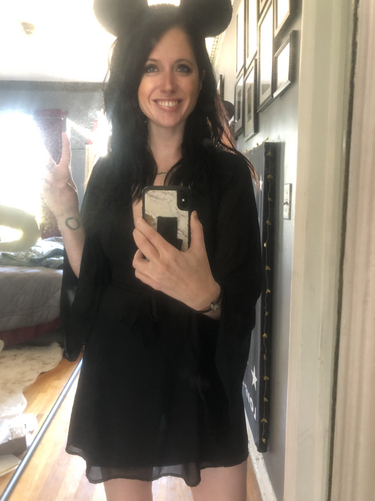#Question: What Is the Most Powerful Body Language Skill?
Talk Nerdy To Me’s @StaffWriter:
Body language is a funny thing. It's something we all use every day, but most of us don't really think about it. We might be aware of some of the basics, like eye contact and body positioning, but there's a lot more to it than that. In fact, there is one body language skill that trumps all others.
The Most Powerful Body Language Skill
And of all these skills, I believe that the most important one is knowing how to read other people's body language.
The most important skill in body language is being able to synthesize all the body language cues and to an accurate interpretation of the subject's thoughts, feelings, and motivations.
Why Is This Skill So Important?
There are many reasons why this skill is crucial to your life, business, and relationships. Let’s explore 10 reasons why this skill is so important.
You Can Better Understand People’s Intentions
Being able to read body language allows you to understand other people's hidden motivations and intentions. Reading someone's body language, you can get a sense of what is boiling just under the surface. For example, you can discover if someone has positive or negative intentions. As a result, you can better manage your own interactions with them.
You Can Better Understand How People Are Feeling
The ability to read body language is essential for understanding people's feelings. By reading the cues that people's bodies are giving off, we can get a sense of what they may be feeling inside.
For example, someone who is crossing their arms may be feeling defensive, while someone who is leaning forward may be interested in what you're saying.
By paying attention to these subtle signals, we can gain a deeper understanding of the people around us. In some cases, we may even be able to pick up on feelings that the person themselves is not aware of.
This can be especially useful in situations where verbal communication is difficult, such as when we're trying to communicate with someone from a different culture.
You Can Better Understand What People Are Thinking
By reading body language, you can get a better sense of what the other person is thinking.
For example, if someone is crossing their arms, it might mean that they disagree with what you're saying. Or if someone is leaning in, they might be interested in what you have to say.
This can be especially helpful in business or personal relationships. When you know what someone is thinking, you can adjust your own behavior accordingly. As a result, reading body language can help you to better understand and connect with others.
You Can Better Manage Your Own Body Language
The way we carry ourselves sends strong messages to the people around us, whether we realize it or not. By reading other people's body language, we can learn a lot about how they're feeling and what they're thinking.
This information can be very useful in managing our own nonverbal communication. If we know that someone is feeling uneasy, for example, we can adjust our own body language to make them feel more comfortable.
Or if we want to send a message of confidence, we can use our posture and gestures to convey that message. By understanding the power of body language, we can use it to our advantage in both our personal and professional lives.
You Can Avoid Dangerous Situations
The ability to read body language is a critical survival skill. By understanding the nonverbal cues that people use to communicate, you can often avoid dangerous situations before they escalate.
You can tell when someone is getting angry and aggressive, and you can take steps to defuse the situation before it turns violent. You can also spot when people are trying to manipulate or take advantage of you, which can help you protect yourself from being taken advantage of.
In short, learning to read body language can help you keep yourself safe in a variety of situations.
You Can Increase Rapport and Trust with Others
Body language is a powerful tool that can be used to build rapport and trust with others. By understanding and using the nonverbal cues that we all give off, we can more effectively communicate with those around us.
For example, making eye contact is a universal sign of respect and attentiveness. When we make eye contact with someone, we are essentially saying, "I see you and I'm interested in what you have to say." On the other hand, avoiding eye contact can make someone feel like we're not really listening to them or like we're trying to hide something.
Another important nonverbal cue is our posture.
When we stand up straight and open our bodies to someone, it shows that we're approachable and confident. Conversely, crossing our arms or hunching over can make us seem closed off or insecure.
The way we use our facial expressions also speaks volumes. A genuine smile conveys warmth and friendliness, while a forced smile can come across as insincere or even threatening.
You Can Make a Better First Impression
By understanding body language cues, you can adjust your own body language to make a better first impression. For example, if you're meeting someone for the first time, you might want to keep your arms uncrossed and your body relaxed to show that you're open and approachable.
Similarly, if you're giving a presentation, you might want to keep your posture confident and your voice clear to project authority.
Understanding body language can help you to better navigate initial social situations and make the most of every opportunity.
You Can Improve Your Negotiation Skills
Body language is essential for effective communication, and nowhere is this truer than in the world of negotiation.
By understanding the nonverbal cues of the person you're bargaining with, you can gain invaluable insights into their true intentions. Are they leaning in or pulling away? Making eye contact or averting their gaze?
These are all important clues that can help you gauge how the negotiation is going and whether you're likely to reach a successful outcome. In addition, paying attention to body language can also help you project confidence and stay calm under pressure—two essential qualities in any successful negotiator.
It just might give you the edge you need to get the deal done.































